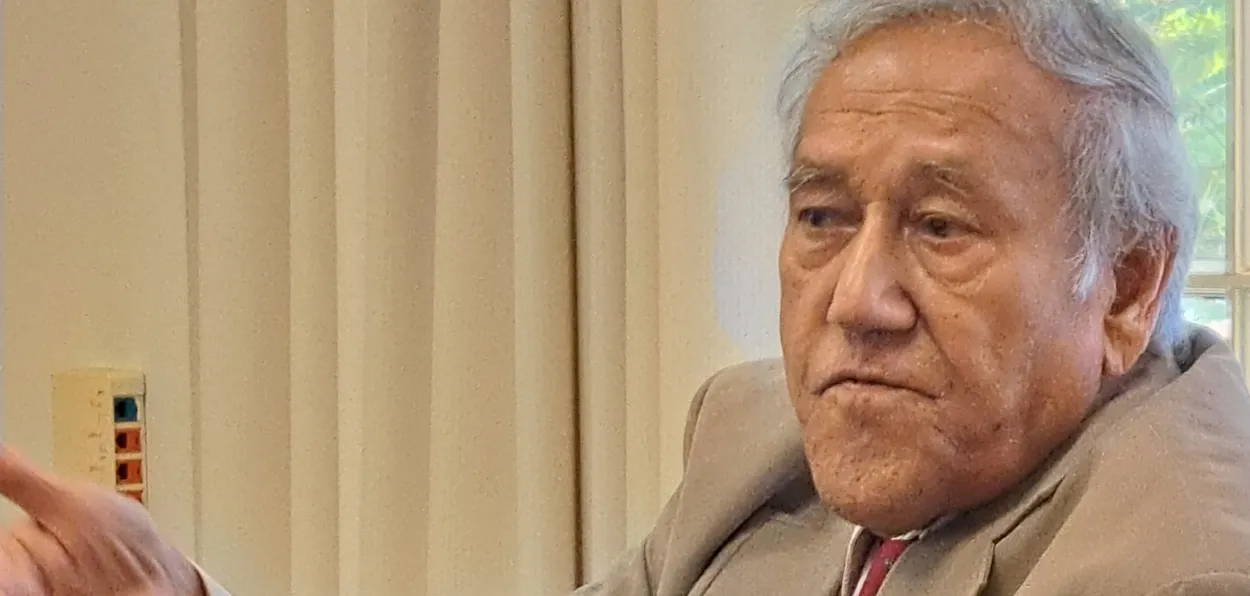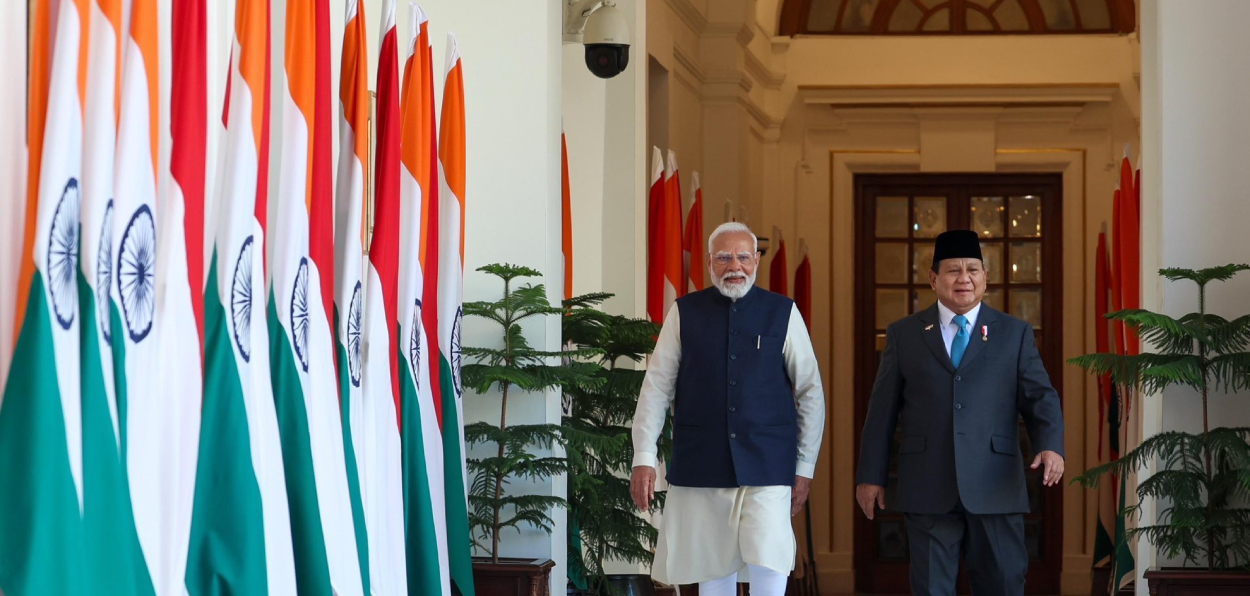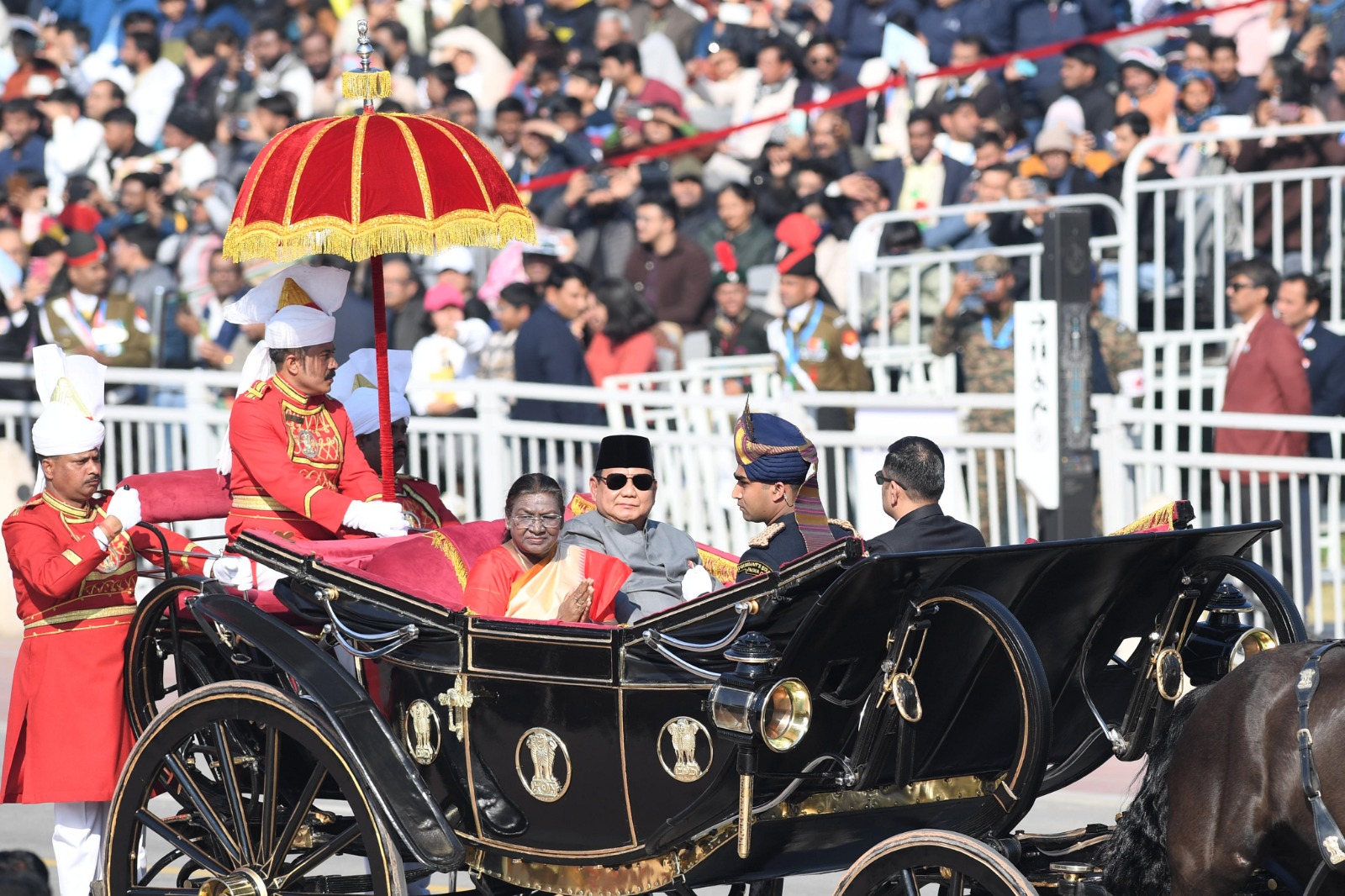
Aditi Bhaduri
Professor Baladas Ghoshal is a former Professor and Chair in South and Southeast Asian Studies, at Jawaharlal Nehru University, Delhi, and Secretary General of the Society for Indian Ocean Studies. A Fulbright Scholar, Professor Ghoshal has taught and had research assignments in the United States, Japan, Russia, Indonesia, Malaysia, Singapore, and Hong Kong.
He reads, writes, and speaks Bahasa Indonesia and Malay, the languages spoken in Indonesia. In this interview with Aditi Bhaduri, Professor Ghoshal expounds on the significance of Indonesian President Subianto's recent visit as the Chief Guest of India's 76th Republic Day celebrations, and the prospects and challenges of India-Indonesia bilateral relations. Excerpts:
How significant was the participation of Indonesian President Prabowo Subianto as Chief Guest at India's Republic Day celebrations?
The most significant was symbolic. Late President Sukarno was the Chief Guest at the First Republic Day of India in 1950, and President Prabowo Subianto participated in the 75th Anniversary, symbolizing the place and the role of Indonesia in India’s foreign policy in the broader framework of New Delhi’s policy towards Southeast Asia, later metamorphosed into Look East to Act East Policy and finally Indo-Pacific strategy.
This was also his state visit to India, accompanied by a large high-level delegation including several ministers as well as senior officials and a business delegation discussing various areas of cooperation in an attempt to strengthen the political, defense, and security ties between the two countries. India and Indonesia had adopted in 2918 the “Shared Vision of India on Maritime Cooperation in the Indo-Pacific,” affirming themselves as maritime neighbours and strategic partners to further deepen and broaden the defense cooperation to a robust one. The recent visit further strengthened that cooperation.
India and Indonesia had a close relationship as both countries were liberated from colonialism. Given their history and development, they should have remained close partners but that didn't happen. Why?
Bilateral relations between two countries are always guided by certain pull factors which automatically bring them closer to each other. First, the time in the late 1940s and early 1950s when India and Indonesia had their golden period of friendship, was different. It was a period when ideology had a higher premium in one’s assessment of the world. I call it diplomacy of proclamation. Principles like anti-colonialism, anti-racialism, and non-alignment had a much greater appeal than issues like trade, investment, and other transactional elements that drive foreign policy.
 Indonesian President Prabowo Subianto with Prime Minister Narendra Modi in New Delhi
Indonesian President Prabowo Subianto with Prime Minister Narendra Modi in New Delhi
More importantly, both countries were newly independent and were still fighting remnants of it. Economically they were all poor and were trying to derive benefits from the Cold War between the United States and the Soviet Union, getting aid from both through their policy of non-alignment. Second, it was also a period, when both needed each other. India needed Indonesia to promote its vision of Asia in the post-colonial period.
India under Nehru believed its independence was not meaningful till other Asian countries could throw the evils of colonialism. Along with Australia, India took a prominent role in supporting Indonesia’s struggle against the Dutch in the United Nations. India supported Indonesia in various ways during that period, including training their air force. India paid for the maintenance of their embassy in New Delhi. Indonesia, however, paid them back later, when it officially received its formal independence from the Dutch. Because of their mutual need for each other, the two countries were also pulled towards each other, resulting in a bonhomie that never existed in the subsequent period. Domestic factors combined with regional developments contributed to the differing worldviews of Pandit Nehru and Sukarno driving a wedge in their relationship in the late 1950s and 1960s.
What are the current challenges in bilateral relations?
Challenges are manifold. One, India’s bargaining capacity vis-à-vis Indonesia in trade in goods is poor. India’s productivity compared to the countries in the Southeast is low and is not cost-effective. The result is trade between the two countries is much lower than its potential. Reforms that would have corrected this anomaly are lagging. India is strong in the service sector and investment, but Southeast Asians are not very interested in giving access to those sectors.
Second, the China factor offers a better deal to the Southeast Asian countries. Third, Islamization in Indonesia and India’s internal politics, and perceived treatment of Indian minorities are also sources of uneasiness in the relations. Finally, India's troubled relations with its South Asian neighbours. More importantly, Indonesia’s stakes in India are much lower than India’s stakes in Indonesia. India has major investments in Indonesia, but Indonesia has insignificant investments.
Indonesia has evinced interest in acquiring the BrahMos cruise missiles from India. This is obviously to counter the military threat from China. Yet Indonesia has very close economic ties with China. How do you view Indonesia's decision in this regard?
Most countries in Southeast Asia, including Indonesia pursue a two-fold strategy vi-a-vis China – Hunting with the hound and running with the hare. On security issues, they try to develop closer relations with the United States, Japan, and India to manage the threat from China, particularly in South China where Beijing has extensive claims even the territorial waters and EEZs of other countries of Southeast Asian countries and build defense cooperation, but on trade and investment issues they have a very close and intimate relationship with China.
Defense cooperation between India and Indonesia has to be viewed within that context and background. The Philippines have already acquired Brahmos from India, and now Indonesia is keen to have them to strengthen its defense capabilities vis-a-China, more as insurance to deal with a possible crisis in Indonesia-China relations. Vietnam also wants it to deal with the Chinese threat. Moreover, Prabowo is a former military man and was inspired by a vision of a powerful country that Indonesia deserves based on a civilizational country.
 Indonesian President Prabowo Subianto with President Droupadi Murmu arriving for the Republic Day Parade in New Delhi
Indonesian President Prabowo Subianto with President Droupadi Murmu arriving for the Republic Day Parade in New Delhi
India is interested in the development of the Sabang deep water port in Indonesia. How important is this port for India and what are the prospects for the India-Indonesia defense partnership?
Situated in the Aceh province of Indonesia, Sabang Port holds significant strategic importance due to its location and potential impact on regional connectivity. The port’s development would provide India with easier access to the Malacca Straits, a crucial maritime trade route. Sabang Port, approximately 700 ms from Andaman Nicobar Islands, offers a geographically advantaged position for India. By establishing a presence in Sabang, New Delhi can enhance its maritime trade connectivity and gain better access to the Malacca Straits. This would significantly benefit India’s trade relations with Southeast Asian countries. It would provide India with a strategic foothold, and bolster India’s position in the Indian Ocean.
A well-functioning port in Sabang would enable India to enhance its surveillance and naval operations in the region. However, progress in the development of the port is slow, and discussions have been going on till now. A feasibility study has been submitted to Indonesia but it is under consideration. In 2018, Indonesia’s Coordinating Minister for Maritime Affairs and close confidant of Jokowi, Luhut Panjaitan hinted at the potential military use of the port sparking speculation of its strategic use and implications for India. Beijing might come in the way of the fruition of the project because of its impact on its strategic calculations.
Indonesia has joined the BRICS as its most recent partner. What are Indonesia's expectations from the BRICS?
Indonesia's formal entry into the BRICS bloc is a calculated gamble in an era of global power shifts. But the move could also complicate the country’s non-aligned foreign policy stance if US President Donald Trump views it as a challenge to America’s interests. Indonesia’s foreign ministry confirmed the news in a statement the following day, hailing the milestone as a reflection of its “active role in global issues” and commitment to creating a “more inclusive and fair” world order. Indonesia’s candidacy was reportedly endorsed by BRICS leaders in 2023, but former president Joko Widodo appeared hesitant to join the bloc. He advocated instead for membership in the Organisation for Economic Cooperation and Development, which includes the US, Japan, and 36 other nations.
But the push came from Prabowo. Joining BRICS would enable Indonesia to “expand partnerships globally and make Indonesia not only part of a particular bloc”, he also said in an interview with Indonesia’s national broadcaster at the time. Membership of BRICS is a “strategic hedge”, according to Dedi Dinarto, lead Indonesia analyst at strategic advisory firm Global Counsel, offering the country “flexibility in case there is a shift away from Western-led economic systems”.
ALSO READ: South Asia Economic Union a far cry due to political differences
“Prabowo appears to be keeping options open with all parties,” he said, noting the move also aligned with the new president’s more active approach to Indonesia’s foreign policy. While many in Western political circles see BRICS as a geopolitical vehicle for Beijing and Moscow to expand their influence, analysts say Prabowo’s push to join may reflect his aspiration to position Indonesia – and himself – as a leader of the Global South. But this ambition could come at the cost of undermining Indonesia’s long-standing non-aligned foreign policy stance.
